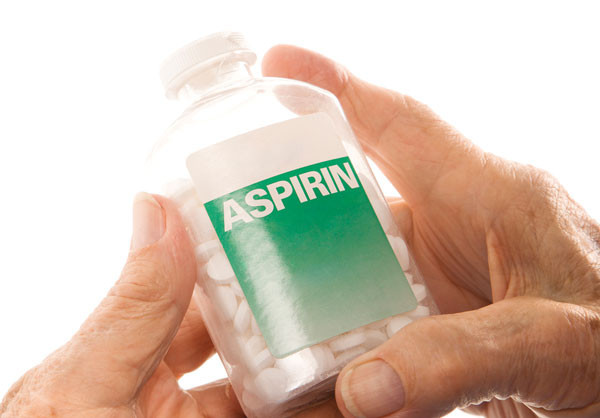
Driving with arthritis pain: Stay comfortable — and safe — behind the wheel

Daily cup of coffee may prevent afib recurrence

Gene-editing therapy lowers harmful blood fats in early study

What is EMDR therapy, and who can it help?

GLP-1 drugs versus bariatric surgery for treating obesity

Two dumbbells, three exercises, and 10 minutes

Easing the emotional burden of IBS

Modify your push-ups to meet your fitness level

What is long QT syndrome?

Stroke survivors may benefit from very low LDL levels
Medications Archive
Articles
Heart-related complications in people hospitalized with the flu
Research we're watching
Serious heart complications are common in people hospitalized with influenza, according to a study published online Aug. 25, 2020, by Annals of Internal Medicine.
Researchers from the CDC looked at the rates of cardiovascular problems in more than 80,000 adults hospitalized with a confirmed case of influenza (commonly called the flu) from 2010 to 2018. Almost 12% had a serious cardiovascular problem, most commonly heart failure or a lack of adequate blood flow to the heart, known as acute coronary syndrome. The body's immune response against the infection can trigger inflammation and other changes that harm the cardiovascular system.
What could cause low blood pressure?
On call
Q. My blood pressure stays low. Sometimes it drops so low, it causes dizziness and weakness. What causes this?
A. Of the possible causes of low blood pressure, two are at the top of my list. First, I would review your medications. Drugs prescribed to treat high blood pressure and heart disease are the ones that most often cause this side effect. Reducing the dose with your doctor's approval may be all you need.
Should I worry about a sudden swollen tongue?
On call
Q. What would cause my tongue to suddenly swell? Could this be a possible side effect of medication, or something else?
A. There are many reasons for a swollen tongue. Indeed, a reaction to a medication is one of the more common causes. For example, a well-known side effect of ACE inhibitors (a class of drugs used to control blood pressure) is a condition called angioneurotic edema. Swelling of the face, lips, and tongue can happen quickly in people who take an ACE inhibitor. The reaction may occur soon after it's first taken or at any time thereafter. Sometimes people get this reaction even though they have used the drug for several years. ACE inhibitors are more likely to cause angioneurotic edema in African Americans.
The new-old way to treat gout
New guidelines suggest doing more of the same. The problem is that many people don't.
You never forget your first gout attack. The severe pain, swelling, and redness hits hard and fast. The initial attack often strikes your big toe's large joint, but later ones might affect the foot or ankle. Other hot spots include the knees, hands, and wrists.
First-line treatment is quite effective and includes anti-inflammatory medications, ice therapy, and rest. A combination of diet and lifestyle changes and prescription drugs — an approach called urate-lowering therapy, or ULT — is typically recommended if attacks recur or become more severe.
Are you taking too many medications?
Peer into your pillbox: It may be time to streamline your drug regimen.
Medication regimens often start simply, perhaps with a multivitamin and a single prescription drug to treat a chronic condition. But with age and more health problems, a regimen may grow to include additional prescription drugs and dietary supplements (such as vitamin D and calcium), plus over-the-counter medicines to reduce symptoms such as pain or heartburn. In time, you can find yourself facing a crowded pillbox and a complicated regimen.
"Among people age 62 to about 85, a third will take five medications per person. In the higher-risk population that I take care of, those people average 15 medications per person. And some of the dialysis patients take about 20 prescriptions," says Joanne Doyle Petrongolo, a pharmacist at Harvard-affiliated Massachusetts General Hospital.
Use topical painkillers for strains and sprains
In the journals
Hold off on taking pain pills to treat a sprained ankle, strained neck, or bruised knee. A new guideline from the American College of Physicians and the American Academy of Family Physicians recommends certain topical (gels, liquids or patches placed on the skin) painkillers as the first line of defense for musculoskeletal injuries in areas other than the lower back. The new guideline, published online Aug. 17, 2020, by Annals of Internal Medicine, was based on a review of more than 200 studies including a total of 33,000 patients with short-term injuries (pain lasting less than four weeks). It recommends using a topical nonsteroidal anti-inflammatory drug (NSAID) with or without menthol (which creates a cooling sensation). Topical NSAIDs come in gel, liquid, or patch forms; diclofenac gel (Voltaren Arthritis Pain) and aspirin cream are available without a prescription. Topical NSAIDs may have fewer risks than oral NSAIDs, which raise risk for stomach ulcers and bleeding, high blood pressure, kidney damage, and heart attacks. However, if topicals don't work, the guideline says you can move to oral NSAIDs such as ibuprofen (Advil, Motrin) or the non-NSAID painkiller acetaminophen (Tylenol); acupressure; or transcutaneous electrical nerve stimulation. The guideline recommends against using opioids such as tramadol (Ultram) except in severe cases.
Image: Victor_69/Getty Images
Is it safe to reduce blood pressure medications for older adults?
Urine color and odor changes
Surprising factors influence urine color and odor including food and medication
Many things can alter the look and smell of your urine. When should you be concerned?
Nearly six and a half cups — that's how much urine the average person produces a day, usually in four to eight trips to the toilet. The ritual is so routine that most of us pay little attention to our urine — that is, unless it happens to look or smell different than usual.
Aspirin and your heart: Many questions, some answers
Taking an aspirin can protect you from heart attack, blood clots and more
First marketed by the Bayer Company in 1897, aspirin (acetylsalicylic acid) is one of our oldest modern medications — and its parent compound is much older still, since Hippocrates and the ancient Egyptians used willow bark, which contains salicylates, to treat fever and pain. Over the past 100 years, aspirin has made its way into nearly every medicine chest in America. Indeed, this old drug is still widely recommended to control fever, headaches, arthritis, and pain.
Although aspirin remains an excellent medication for fever and pain, other drugs can fill these roles equally well. But aspirin has a unique role that was not even suspected by its early advocates. In patients with coronary artery disease, aspirin prevents heart attacks.
Does aspirin stop a heart attack?
Ask the doctor
Q. Should I take aspirin if I think I'm having a heart attack, and what kind of aspirin should I take?
A. First, what symptoms indicate you might be having a heart attack? The main symptom is a squeezing, tight sensation in the middle of the chest that can travel up into the jaw and shoulders, and even down the left arm. Along with the pain you may begin to sweat and to feel weak, like you might pass out, and be short of breath. While other conditions besides a heart at-tack can cause similar symptoms, you need to take such symptoms very seriously. First, call 911.

Driving with arthritis pain: Stay comfortable — and safe — behind the wheel

Daily cup of coffee may prevent afib recurrence

Gene-editing therapy lowers harmful blood fats in early study

What is EMDR therapy, and who can it help?

GLP-1 drugs versus bariatric surgery for treating obesity

Two dumbbells, three exercises, and 10 minutes

Easing the emotional burden of IBS

Modify your push-ups to meet your fitness level

What is long QT syndrome?

Stroke survivors may benefit from very low LDL levels
Free Healthbeat Signup
Get the latest in health news delivered to your inbox!
Sign Up











